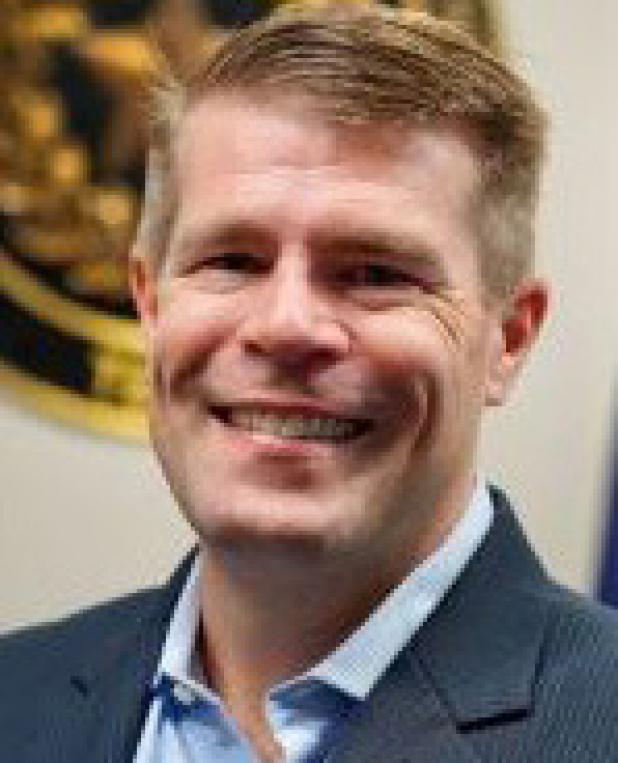


State Board of Education, District 15
The Enterprise queried the three candidates running for State Board of Education about local issues. Democrat Morgan Kirkpatrick and Independent Jack Westbrook responded and their answers follow. Incumbent Republican Aaron Kinsey did not respond.
Enterprise: What is your position on school vouchers?
Ms. Kirkpatrick: My position on school vouchers has been the same for over a decade: I strongly oppose them. Vouchers divert critical public funds away from our public schools and toward private institutions that do not have to meet the same accountability standards. If the current per pupil allotment is less than the proposed vouchers by several thousand dollars, this is especially harmful for rural schools, like Olney ISD, which rely heavily on state funding to provide quality education. When students leave through a voucher system, the schools lose not only students but the funding tied to them.
While I don’t believe it’s a done deal, should a voucher scheme pass, the State Board of Education must focus on ensuring rural schools are not left behind. We can advocate for safeguards that keep necessary funding in these schools, no matter the student outflow. Additionally, the SBOE can push for greater transparency and accountability for schools receiving voucher funds, ensuring they uphold rigorous educational standards.
Mr. Westbrook: Ideally, we Libertarians are against tax-funded education, but the education of our nation is of utmost importance to our nation and to those who need to employ an intelligent workforce. Vouchers will take away from our ability to educate those who are not able to educate themselves. It is not well thought out by those who advocate for vouchers. I’m afraid that communities like Olney will be forced to consolidate with other ISDs in order to survive if vouchers become a reality.
Enterprise: What is your position on unfunded mandates such as the safety and other compliance rules that cost Olney ISD more than $250,000 per year?
Mr. Westbrook: As a Libertarian, I do not not support mandates by the federal government or state government on school districts. One of my main reasons for running is to give liberty to school districts, administrators, teachers, parents, and students. Students are the primary stakeholders of the SBOE, so the priority goes to them first.
Ms. Kirkpatrick: The burden of unfunded mandates, like the safety and compliance requirements costing your district over $250,000 annually, is a serious concern for many schools across Texas. While the State Board of Education doesn’t have the authority to take direct action, we can and should use our platform to be vocal advocates. Ultimately, we can advocate for better state funding and push for the legislature to fully fund any mandates they impose. Schools shouldn’t have to choose between complying with state laws and providing essential educational services because of a lack of resources.
We should also raise awareness about the cumulative impact of unfunded mandates on rural schools, ensuring that state leaders understand the strain they are placing on our districts.
Enterprise: What can SBOE do to alleviate unpaid licensing requirements for teachers and encourage more people to enter teaching?
Ms. Kirkpatrick: I believe that maintaining strong licensing and certification requirements is essential to ensuring our students receive a high-quality education from well-prepared teachers. However, we must also recognize that these processes can become overly burdensome. The State Board of Education can work to find a balance. We can review the current system to identify where unnecessary hurdles might exist and advocate for streamlining processes that don’t compromise quality.
To encourage more people to enter the teaching profession, we need to offer support throughout the certification process. The SBOE can promote funding for teacher preparation programs, increase access to scholarships, and advocate for mentoring and residency programs that provide new teachers with practical experience and support.
Mr. Westbrook: It has been a number of years since I encountered this issue personally. As a former pulpit minister, who need to supplement my income by teaching, I was forced to take positions as a substitute because I did not have a teaching certification. Libertarians are against state licensing. As I said in the former question, the SBOE should not put mandates on districts for “highly qualified” teachers. If a district has a position that they are having trouble filling and they find an individual whom they believe can fill the position. Then they should have that liberty. The SBOE should only provide ideal guidance. It would make sense that the most prestigious jobs would go to licensed educators.
Enterprise: What would you change about the way SBOE operates?
Ms. Kirkpatrick: The authority of the State Board of Education has evolved significantly over time. In earlier years, the SBOE had more direct control over various aspects of the state’s education system, from setting curriculum standards to managing school funding. However, over time, much of this authority has been either reduced or shifted to other entities like the Texas Education Agency (TEA) and the state legislature.
One of the most notable changes has been the SBOE’s decreasing role in setting education budgets and allocating funds. Today, the board’s primary responsibilities focus on adopting curriculum standards, reviewing instructional materials, and overseeing the management of the Permanent School Fund. While these are critical duties, the board’s ability to influence broader education policy and funding decisions has been limited as more authority has shifted to the TEA and legislative committees.
Additionally, the state’s focus on standardized testing, as well as increased legislative involvement in education policy, has diminished some of the SBOE’s ability to shape long-term educational outcomes. Despite these changes, the SBOE remains a powerful body in determining what Texas students learn, especially through curriculum adoption and textbook approvals. Moving forward, I believe the board must continue to advocate for a stronger voice in education policy discussions to ensure that Texas schools are equitably funded and that all students receive a high-quality education.
Mr. Westbrook: I recently read that the board made changes to the dyslexia handbook with the intention to get feedback from stakeholders after the fact. That is not good management or leadership in my experience. Soliciting feedback from stakeholders should be the number one priority prior to changing things. Moreover, the SBOE should serve as a protector of students and educators from legislation that violates their rights.
